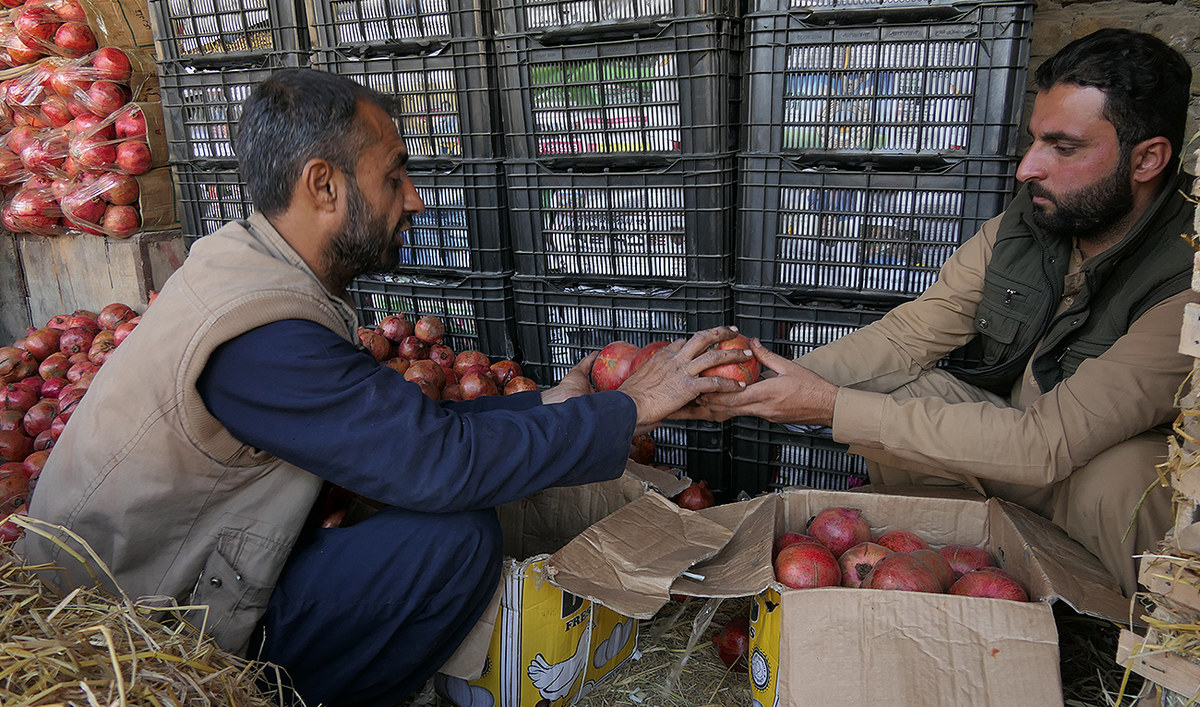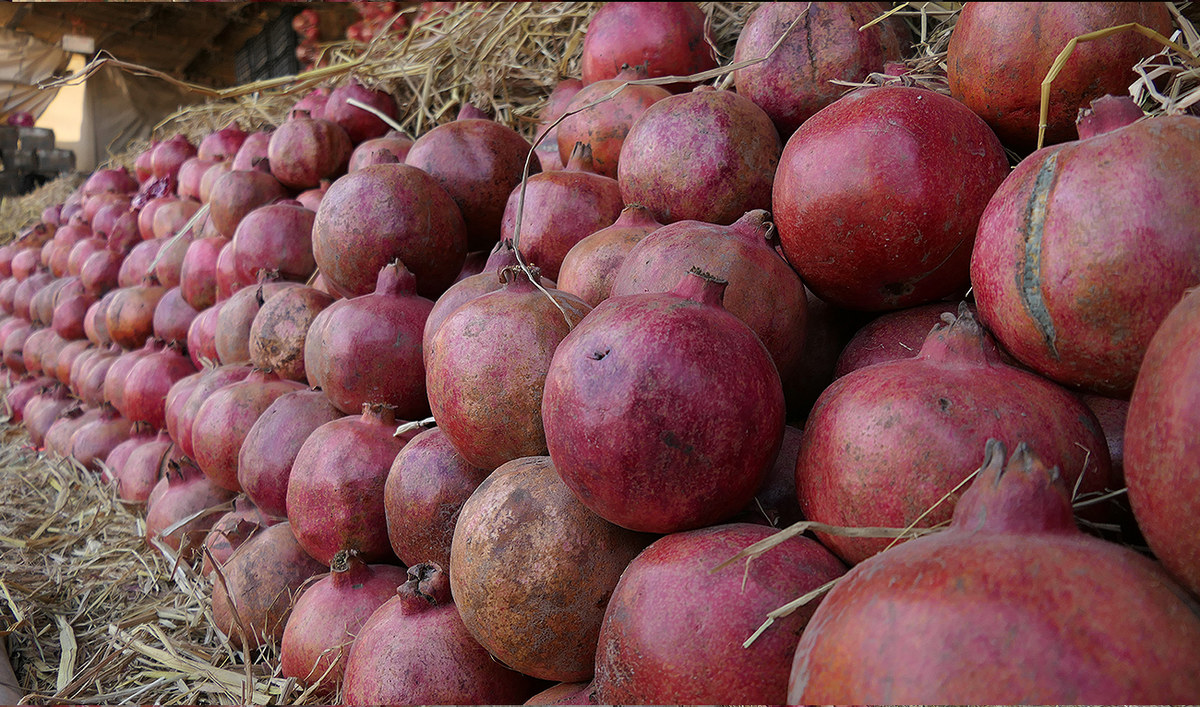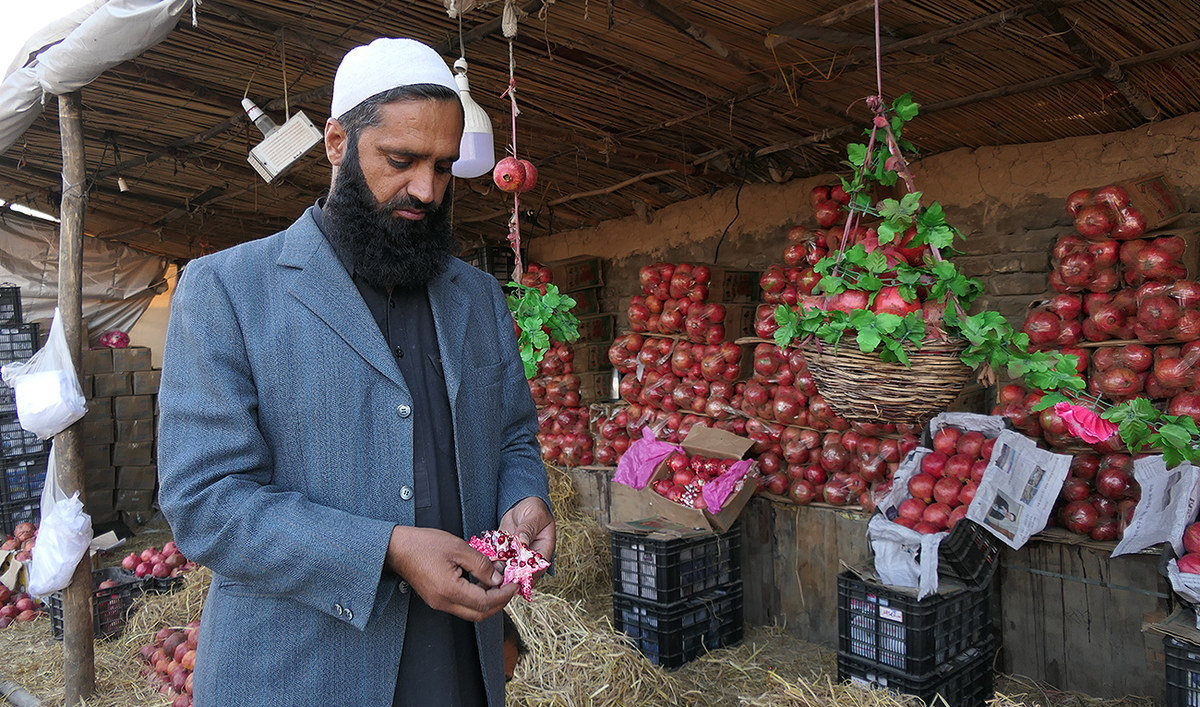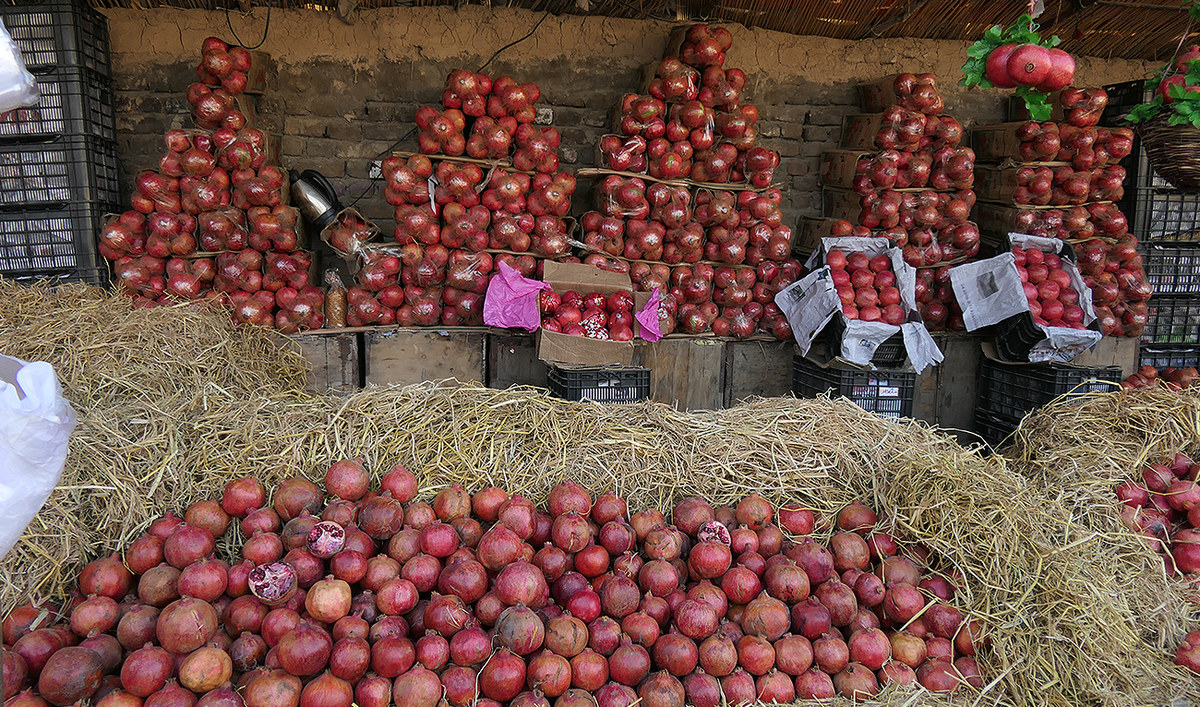QUETTA: As Syed Ahmed, 42, arranges shining, red-colored pomegranates under a small bamboo roof, the sight of the prized fruit stops customers at his shop in the heart of southern Pakistani city of Quetta. The pomegranates, imported from Afghanistan, are considered a prized seasonal fruit in Pakistan, particularly in the Balochistan province, however, the recent tensions between the two neighbors have threatened its trade, with Pakistani buyers worrying for tons of merchandise stuck on the border.
Locally known as ‘Kandhari Anaar,’ or Kandahari pomegranate, the red-skinned fruit has juicy, blood-red seeds intricately affixed to a soft, white inner cover, and is full of nutrition. Many in Pakistan and Afghanistan call it a ‘fruit from the heaven’ because of its unique taste that they say is superior to all other varieties of pomegranate.
However, the import of the prized fruit from Afghanistan’s Arghandab, Bala Jar and Parwan areas, has lately been threatened by rising tensions between Pakistan and Afghanistan and has traders worrying for the consignments in Pakistan’s Balochistan province.
“We are in the middle of pomegranate season that will last till the end of December, but due to the recent Pak-Afghan trade closure at Chaman border, a huge stock of pomegranate is now stranded at [Afghanistan’s] Spin Boldak border crossing,” Ahmed, who runs a fruit shop in Quetta’s Pishin Stop area, told Arab News on Thursday.

In this photo, taken on November 22, 2023, fruitseller Syed Ahmed (left) unboxes fresh stock of the Kandhari pomegranate in Quetta. (AN Photo)
“I am very much concerned about my 30 tons of pomegranate which I ordered from Arghandab in Afghanistan’s Kandahar province. If I don’t receive my order timely, it will get damaged and I could face a severe loss for this season.”
Over the last two years, Pakistan has closed its northwestern and southwestern border crossings with Afghanistan several times, following deadly skirmishes between border troops of the two countries. Ties between the two neighbors hit a new low after Pakistan last month asked all undocumented foreigners, mostly Afghans, to leave the country by Nov 1, and imposed a strict visa regime at all border terminals.
Pakistan’s southwestern Balochistan province shares a long, porous border with Afghanistan and a large amount of fruit and vegetables produced in Afghanistan crosses into Pakistan through the Chaman border crossing in the province. But trade activities in the Chaman border town remain suspended for the last three days after thousands of protesters blocked the transit route to protest the government’s new visa policy.

This photo, taken on November 22, 2023, shows the Kandhari pomegranate at a shop in Quetta. (AN Photo)
Hajji Nanai, 65, a farmer cultivating pomegranates in Afghanistan’s Kandahar province for the last 50 years, says more than 400 trucks loaded with pomegranates and other fruit are currently stranded at the Spin Boldak border crossing, which connects with Chaman, due to the trade route closure.
“Local pomegranate farmers and traders are worried about their production because there is a massive quantity of Kandahari Anaar at orchards in different villages of Kandahar province waiting to be exported to Pakistan and India through the Chaman border,” he told Arab News over the phone.
Pakistan imported Kandahari Anaar worth more than Rs500 million ($1.7 million) through the Chaman border in the last winter season (October to December), according to Hajji Jalat Khan Achakzai, an ex-president of the Chaman Chambers of Commerce.
Since the start of this season, Afghan farmers have exported pomegranates worth Rs181 million ($379,218). A 20-kilogram box of Afghan pomegranates currently sells between Rs1,000-1,500 ($3-5) in Balochistan. The price varies in other parts of the country.

In this photo, taken on November 22, 2023, a customer, Shabir Ahmed, holds Afghanistan's Kandhari pomegranate to buy at a local market in Quetta. (AN Photo)
Shabbir Ahmed traveled from the Mastung city, some 50 kilometers away from Quetta, to buy the special variety of pomegranate for his family and as a gift for one of his friends in Pakistan’s eastern Punjab province. He said the fruit was full of nutrition, with a deliciously sweet taste.
“Despite the growing price, we buy Kandahari Anaar because we can’t spend the pomegranate season without eating them,” Shabbir told Arab News.
While mounting tensions between Afghanistan and Pakistan have already affected business activities in border markets, local traders in the Pakistani border town of Chaman fear the ongoing protest and closure of Pakistan-Afghanistan transit trade route might result in huge losses to the cross-border fruit and vegetable trade.
“If the trade route remains suspended for a long time at Chaman and Spin Boldak points, pomegranate and other fruit and vegetable trade will be affected more than 50 percent,” Achakzai, the former Chaman Chambers of Commerce president, told Arab News.
“Thousands of people in Chaman and Balochistan are linked with pomegranate business, if they don’t get enough seasonal stock, their economic situation will be tarnished.”

This photo, taken on November 22, 2023, shows Afghanistan's Kandhari pomegranate at a shop in Quetta. (AN Photo)



















